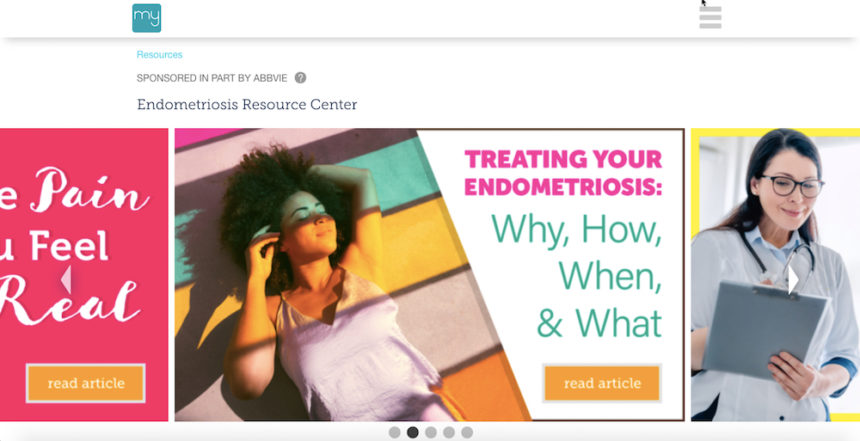Patients with chronic conditions were some of the most concerned when the COVID-19 pandemic erupted.
Their regular care was delayed and, for some, there was a higher risk for catching the virus. That led to a lot of unanswered questions.
“When COVID hit, the demand for disease-specific content shot through the roof,” said Eric Peacock, cofounder and CEO of MyHealthTeams. “Everybody was sharing the general guidelines to follow during COVID, but they were also asking, ‘If I have endometriosis, what should I do during COVID? What does that mean?’”
To help address those concerns, MyEndometriosisTeam and AbbVie teamed up to create a COVID-19 and endometriosis Q&A with an expert. The 20-minute video addressed the concerns that many patients on the MyEndometriosisTeam network had. The network has more than 100,000 members.
A main concern was that many endometriosis patients stopped receiving the care they needed due to COVID-19, Peacock said. Because some surgical treatments for endometriosis are considered elective, or non-essential, they were canceled.
Once more doctors began adopting telehealth, some chronic disease patients began getting regular care again, but many people with endometriosis did not, he added.

“You had these women facing a very real disease with very real pain and not getting the healthcare they need,” he said. “When you have constant pain it can also lead to depression. Pile onto that quarantine and sheltering in place, not getting interaction with others or getting healthcare. It became very evident we needed to empower them with information.”
The new video features gynecologic surgeon, professor and chair of the International Pelvic Pain Society Dr. Georgine Lamvu answering these questions about the risks of endometriosis and COVID-19, receiving care through telehealth and tips to manage pain while in quarantine.
Across all of the MyHealthTeams networks, Peacock said demand for the disease-specific COVID-19 information is high. When the network emails members about COVID-19 and their condition, the click-through rate is eight times higher than normal, he said.
Earlier this year, MyEndometriosisTeam and AbbVie also launched an Endometriosis Resource Center on the social network. That center includes resources for treating pain, talking with their doctor, self-care and dispelling myths about endometriosis. The two companies have worked together for several years, Peacock said.
They also worked together on patient research to identify gaps and inform future patient education efforts, like the resource center.
“A lot of biotechs and pharma companies just rely on doctors and KOLs to figure out what patients want,” he said. “AbbVie worked with us on qualitative and quantitative research to figure out where these huge patient education gaps or healthcare service gaps were.”
Peacock also noted the resource center is meant to validate patients with the condition, because it can often take many years of misdiagnoses or doctors dismissing their pain to get the right treatment.
“What we’re trying to do is provide scale,” Peacock said. “There are experts on endometriosis, but they may not be in your town. So we can take an expert like that and scale their knowledge to get it in front of 100,000 women.”







